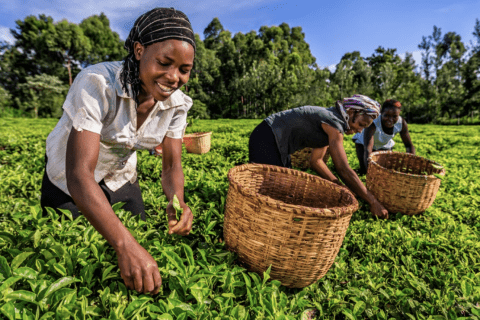
Study finds unconventional forms of resilience in African co-ops’ Covid response
Of the co-ops studied, those which saw their business performance decline were those which offered the most services and gained more members.
A study of the resilience of sub-Saharan African co-ops during the pandemic has revealed an unexpected relationship between co-op service provision and business viability.
Of the 30 co-ops studied, those who experienced declines in business performance were those which offered the most services, and also saw higher increases in membership.
The study, conducted by the International Cooperative Research Group (ICRG), sampled 30 co-ops from Uganda, Malawi, Madagascar, Kenya and Rwanda, mainly from the agricultural sector, as well as two Kenyan housing co-ops.
These co-ops were categorised as either ‘business resilient’ or ‘non-business resilient’, based on annual income divided by membership, or ‘business membership ratio’ over a 12-month period.
The major challenges posed by Covid-19 reported by respondents were restricted mobility, financial hardship and reduced operations.
Restricted mobility was the most commonly cited challenge, mentioned by 18 out of 30 co-ops, but was an even higher concern among non-business resilient co-ops, who were generally situated further from the nearest city to their business resilient counterparts.
Financial hardship and reduced operations were reported as challenges by 13 and 12 co-ops respectively, but by a greater proportion of business resilient co-ops than of non-resilient co-ops, suggesting the two categories may have different perceptions of the most significant challenges.
In response to these challenges, a number of strengths and strategies were employed by the co-ops surveyed. Top of the list was co-ops’ ability to innovate, mentioned by 14 of the 30 co-ops, followed by commitment and trust of members, mentioned by eight respondents, then diversification and sustained operations, both mentioned by four co-ops.
Membership was highlighted as a particular strength of the co-op model in general, with co-ops increasing their membership overall during the pandemic.
Non-business resilient co-ops had a higher number of members, on average, than business resilient co-operatives, both before and after the pandemic. They also experienced greater membership growth, of nearly 60% from pre-Covid-19 to 2021, whereas business resilient co-operatives grew by 41%, on average.
One leader of a co-op from the non-resilient group said: “The major strength we’ve had is co-operation among members… Though there are many challenges they all came together and packed their produce in one place. And even when they were faced with high prices from the up-takers, the degree of co-operation was high. Members came together and shared how to work together; because of this we got high volumes.”
Despite decreased business membership ratios, the non-business resilient co-op were found to not only continue in providing their usual services to members, but many also went a step further, providing Covid-related services to support their members. This was also seen in business resilient co-ops, but to a lesser extent.
The report makes a number of recommendations, and says the complex picture shows the need for a greater variety of tools to gauge resilience outside of business membership ratio and purely economic measures.
Recommendations include: national policy recognising co-ops as essential services during emergencies to provide flexibility; stronger road infrastructure across rural regions; research and training initiatives for diversification of products; improvements to existing technological infrastructure and literacy; systems for decision-making and training that do not require in-person meetings; and decision-making processes that integrate member wellbeing and business viability.
“While we found that approximately only half of the sample were business resilient during Covid-19, the findings suggest co-operatives exhibited other forms of resilience yet to be explored and operationalized in co-operative resilience research,” concludes the report.
“Business membership ratio and economic indicators are external measures of resilience, but for those living on the ground, carrying out daily operations, resilience and value may be measured in a more tangible and internal way.”
You can read the full report here
Source: www.thenews.coop

